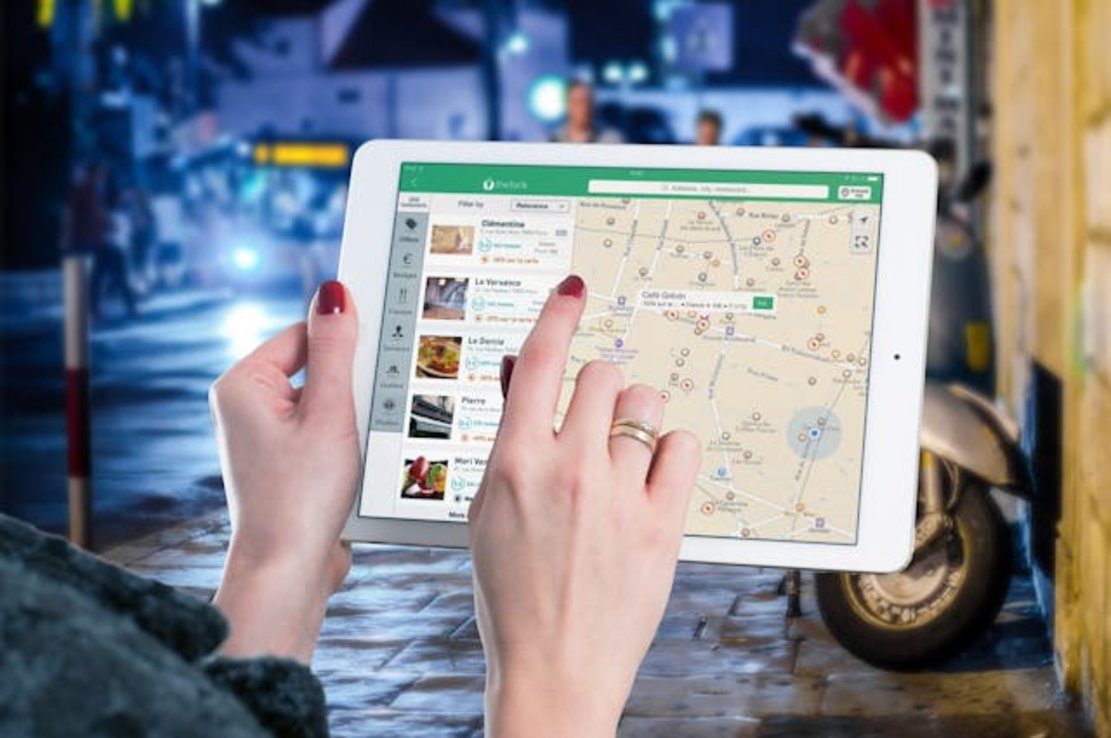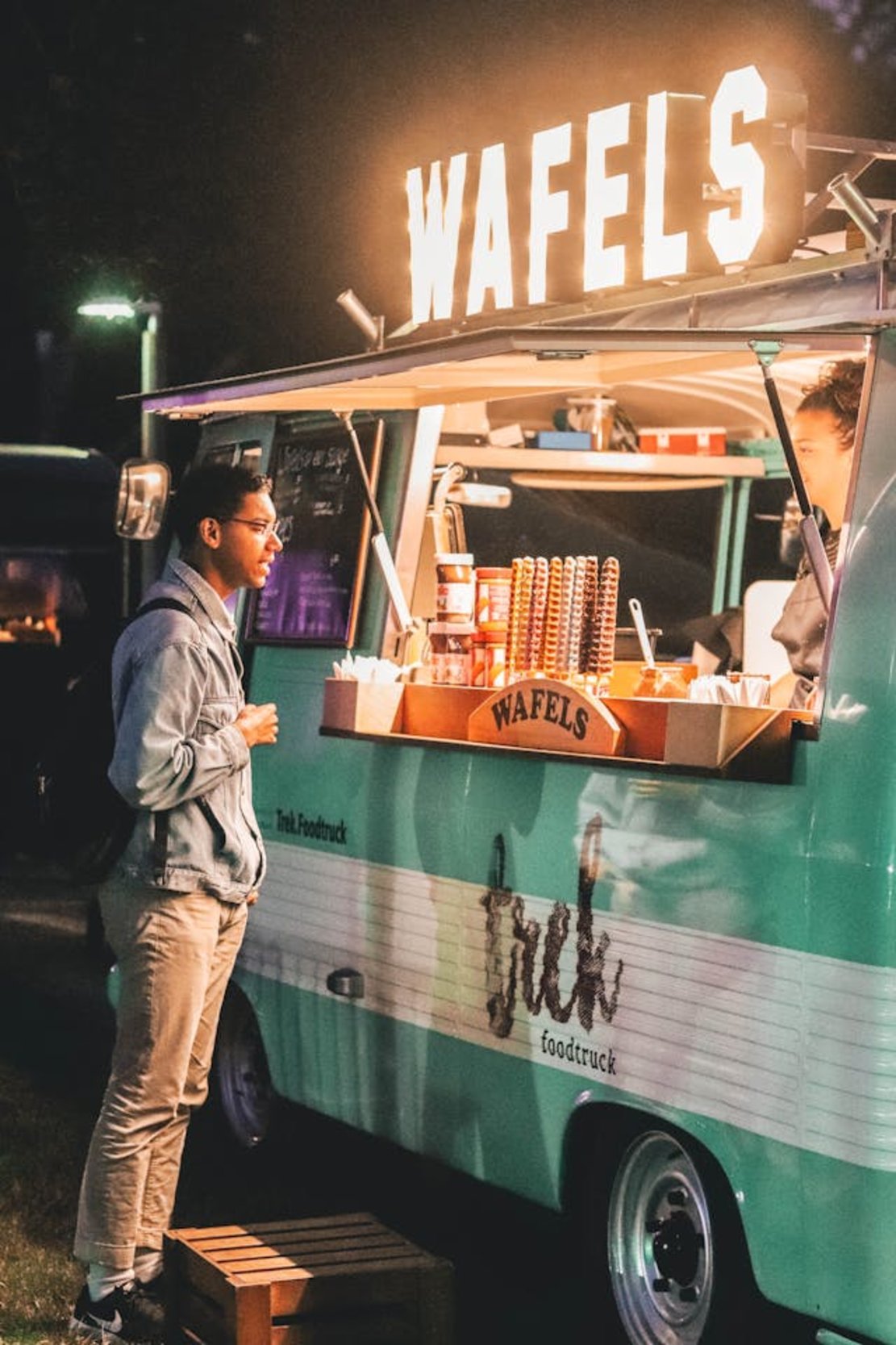Comprehensive Restaurant Marketing Best Practices & Ideas
Learning about restaurant marketing strategies is vital because it increases awareness and brings more customers to your establishment. It can turn a slow day into a bustling setting where guests need to wait for a table.
You might think you need a super high budget to get excellent results. However, with your creativity and thoughtful planning, you can make marketing work for your restaurant, regardless of your budget. Keep reading this restaurant marketing guide to keep guests walking through the door when you’re open.

Understanding Restaurant Marketing
Restaurant marketing is advertising your establishment to your target audience, i.e., people who will dine in your eatery. You use various best marketing strategies for restaurants to attract new and returning customers.
According to Science Direct, customers will look at value, price, atmosphere, service, and food when deciding which restaurant to visit. With marketing, you can showcase these elements and make your restaurant appealing to your audience.
With effective restaurant marketing ideas and trends, you can:
- Improve brand awareness and recognition
- Attract the right employees, like servers, chefs, and other professionals
- Increase reach as you get to target a larger group of people
- Build loyalty and increase customer retention and lifetime value

Core Best Practices in Restaurant Marketing
Use the following restaurant marketing best practices list to ensure your eatery, like a diner or cafe, keeps growing.
Develop a Unique Brand Identity
The first step in how to market a restaurant is developing your brand identity because it makes your eatery recognizable.
- Brand Identity Essentials What are the essentials of your brand identity? Your logo, color palette, and theme reflect your restaurant’s identity. But your brand identity goes further than just the visuals. It’s the tone of voice you use to communicate with your customers.
You must also develop a mission statement, i.e., your restaurant’s values. Are you looking to reduce waste and focus on sustainability? Do you want to serve healthy food that only uses locally available ingredients?
Additionally, you should have a story, like it’s part of your family tradition or your journey as a restaurant owner. Focusing on these elements helps develop your local restaurant marketing tactics.
- Establishing Customer Personas What is the best marketing strategy for restaurants? To develop marketing techniques for restaurants, you need to build customer personas. They help you personalize your marketing message and target the right customers.
You need to ask yourself questions about your ideal customers to build customer personas.
To give you an example, what age and income groups are ideal for your restaurant? Do you want people who eat outside regularly or customers who wish to have a memorable dining experience? Are you okay with professionals visiting your establishment and working from one of your tables?
Customer segmentation can help create accurate personas. Customer or market segmentation is categorizing your customers using factors like gender, age, location, income, and preferences. When you create these groups, it becomes easier to personalize your messages.
Building an Effective Online Presence
The next step in how to do marketing for your restaurant is developing your online presence. To put it another way, it’s how easy you make it for your customers to find your restaurant.
- Website Development According to Backlinko, 8 out of 10 US consumers look for a local business at least once every week. Your website can be one of the first things that appear when people search for your eatery. Moreover, it gives you a place to talk about your restaurant and express yourself freely.
You can write your story, share your menus, include contact information, and upload photos of your establishment.
You can also allow people to make reservations through your website. The website should be easy to navigate and look professional. Remember, it is one of the first impressions people will have before they visit your restaurant.
- Search Engine Optimization (SEO) Search engine optimization (SEO) makes it easier for your target audience to find your restaurant online. It doesn’t involve using paid methods, like advertising. Instead, you use various strategies to ensure your website appears on top of search results.
Here are some SEO strategies you can use for your restaurant’s website:
- Incorporate relevant keywords into your website’s copy, such as the headers and the body. z
- Keywords are words and phrases your guests use to search for information.
- Make sure it is easy for visitors to navigate your website. They should be able to find what they’re looking for with just a few clicks.
- Provide helpful and accurate content about your restaurant. Keep the paragraphs short to make your content easy to consume.
- Ensure your website loads fast and properly on all devices. Compress the images before you add them to your site. Use a responsive design to ensure everything on your website scales according to the device’s screen size.
Restaurant SEO boosts your website’s rankings and increases traffic.
-
Google Business Profile Your Google Business profile provides the following information to diners:
- Address
- Opening and closing times
- Website
- Reviews
- Service options
- Contact information
- FAQs
- Popular times
- Photos
You can use your Google Business Profile to add your business to Google Maps. It’s also handy for providing regular updates. For instance, you must close your restaurant for a few hours because you’re running low on certain ingredients. With a Google Business Profile, you can inform your customers that it will reopen in a few hours.

Leverage Social Media Platforms
It’s become a necessity for every restaurant to have social media accounts because you’ll find your customers on these platforms. Besides, it’s a whole lot cheaper to advertise on these platforms, unlike traditional marketing media like TV and print media.
- Identifying the Right Platforms You need to identify which platforms work best for your restaurant. You don’t have to be on every platform, especially when doing everything yourself. Find a few platforms that fit your needs.
Instagram is excellent for sharing photos of your restaurant. It can make your establishment look inviting. TikTok works well for engaging with your audience as short-form content thrives on this platform. Use Facebook to create groups and build your community.
You can show people what happens in the kitchen, share tips from your chef, and more.
- Content Creation and Engagement It’s not enough to set up your social media accounts and forget about them. You must be active on these sites to ensure people know about your restaurant. Post stories on Instagram to inform guests about what’s happening in your eatery.
For instance, you have a special offer that is only available to guests visiting your restaurant on Monday afternoons. You can put the spotlight on your staff, repost photos of your customers, and highlight the dish of the day.
Make it a point to respond to your followers. When they send a direct message (DM) or comment on your posts, reply as soon as possible.
- Influencer Marketing Influencers already have a large following, so collaborating with them is always a good idea. They can increase your visibility and encourage their followers to visit your establishment.
Here’s a simple marketing strategy for a new restaurant: invite local influencers to your establishment. They can upload photos, tag your restaurant, and take over your social media account. In exchange, you compensate them for their services.
It’s a good practice to tie the payment to the amount of engagement you receive or another similar metric. You should also highlight the deliverables, i.e., what you want them to do.
-
Offline Marketing Strategies You should focus on your offline presence because it is just as important as digital marketing tactics for restaurants.
-
Community Engagement Get involved with your community and build goodwill. Is there a business that you want to collaborate with? Are there local sports teams you can sponsor? You can even host events for your community. These types of small restaurant marketing ideas can greatly impact your business.
-
Traditional Advertising You can’t ignore traditional advertising, especially if you want an older audience to visit your establishment. Your restaurant’s signage should be easily visible and catch people’s attention.
Print marketing is another marketing strategy for restaurants because you get to reach a large number of people.
- Promotions and Discounts People love promotions and discounts. Additionally, it also gives patrons another reason to check out your eatery. Promotional ideas like discounts can increase business, especially during off-peak hours. If you have a pub or a bar, offer happy hours when business is slow.
For instance, offer a discount when large groups eat at your restaurant on Monday afternoons.
Engaging Customers Through Email Marketing
Email marketing is cheap and can provide excellent returns for the time and money you invest.
- Email Newsletter Essentials Use your email newsletter to keep your audience updated on what’s happening in your restaurant. Did you recently update your menu with new dishes? Is there an upcoming event in your restaurant? Make sure it matches your branding guidelines, i.e., people can easily recognize the newsletter is from your brand.
You must also pick a schedule, i.e., how often you want to send it to your customers. Ideally, once a month is good because it won’t feel like spam.
- Building Your Email List You need to build your email list to send your newsletters to people. But how do you get email IDs from your customers? If you have guest WiFi in your restaurant, you can use a captive portal to provide access to your network. Your guests need to enter their email IDs to use your WiFi.
Another marketing strategy for restaurant businesses is to ask patrons to share their email addresses to send them their bills. You can even offer a small discount when your customers share their email addresses.
Customer Review Management
Customer reviews are powerful marketing strategies for a restaurant. Since they’re directly from your customers, their opinions can influence other people’s perceptions of your restaurant.
- Proactively Requesting Reviews According to Fortunly, 94% of people go through online reviews when they want to pick a restaurant. So, how do you collect user reviews? One option is to train your staff to ask your customers for reviews while they’re paying the bill. You should also make it easy for your guests to review your restaurant. Here are some restaurant marketing strategy examples for requesting reviews:
Include a QR code redirecting people to your Google Business Profile in your bill. Provide a one-time discount to customers who review your restaurant.
- Responding to Feedback You’ll get all sorts of feedback from your guests. Some will be happy, while others will be unhappy about your food and service. When you receive feedback from your customers, you should address it professionally.
Acknowledge the mistakes from your side and offer a resolution. You can even invite the customers to your restaurant to discuss how you can improve their experience. Responding to feedback should be a part of your restaurant’s marketing strategy. Why? Potential customers will read them, especially when looking for a place to eat.
- Using Reviews as a Marketing Tool When you get positive reviews, you should include them in your marketing material. You can post a screenshot of the review on your website. If you’re running a marketing campaign, include customer reviews as a snippet in your messaging.
Data and Analytics for Continuous Improvement
How do you identify the best marketing strategy for your restaurant? You need to look at your data because it highlights what works for your eatery.
- Tracking Key Performance Indicators (KPIs) You need to monitor the restaurant marketing campaign’s key performance indicators (KPIs). For example, what’s your engagement rate, i.e., how many people like, share, and comment on your social media posts?
How many guests redeem the special discounts you offer through your email newsletters? How much website traffic, i.e., how many people visit your website?
Monitoring relevant KPIs helps you identify your eatery’s best restaurant marketing strategies.
- Customer Feedback and Surveys Customers can provide insights about your restaurant, which you can use to improve your business. If you have their email IDs, ask them to participate in surveys. You must ask specific questions to get a realistic overview of your restaurant’s current status.
Creative Restaurant Marketing Ideas
Use the following creative marketing ideas for small business restaurants to generate hype and increase sales.
-
Seasonal and Holiday Promotions Holiday promotions are one of the best ways to market your restaurant. You can include special items that are only available during specific holidays. Since these dishes have a time limit, it encourages people to visit your restaurant. Remember to promote your seasonal and holiday dishes on your social media accounts.
-
Interactive Customer Engagement Use interactive customer engagement techniques when marketing for small restaurants. For example, host a live Q&A session in your restaurant, where guests can interact with your chef. You can even stream this session on various social media platforms.
Unique Events and Experiences
Events and experiences are some of the best restaurant marketing campaigns to draw your customers’ attention.

-
Food Truck Options Food trucks are the best marketing for restaurants because they help you reach a new audience. You can set it up in a different neighborhood to see whether your dishes will become popular. It increases your reach, especially when you set up in a busy locality. However, it can be expensive to acquire a food truck.
-
Workshops and Classes Workshops and classes are also effective restaurant marketing tools. You get to interact with your customers and build relationships. Ask your chefs if they’re open to hosting a workshop and sharing their extensive cooking knowledge. Moreover, this can be another revenue stream for your restaurant.
Final Tips for Successful Restaurant Marketing
Well, here are two restaurant marketing tips for restaurant owners.
- User-Generated Content User-generated content is an excellent marketing strategy. It involves getting your customers to participate and promote your restaurant to their followers, friends, and family. Moreover, it generates loads of content from your customers, which you can use in your social media posts.
When you see an interesting post from a customer, make it a point to share the post on your account. For example, you come across an Instagram story from your guest about their experience in your restaurant.
You should share their opinions in your story. For instance, ask your customers to share photos of your dishes, and the winner will get a free meal.
- SMS Marketing Use SMS marketing to send timely updates about your restaurant. To give you an idea, send a text message when you’re running a limited discount on a few dishes.
Wondering how to market a new restaurant in a new location on a tight budget? One option is SMS marketing because it can raise awareness about your venture.

Easy-To-Read Menus
You need to have easy-to-read menus because they also help with marketing. The font you use should be legible, i.e., people can read it without problems. Use appropriate colors to ensure they match your brand. Moreover, categorize your dishes clearly so it is easy for your customers to find what they want to order.
- Collaborating with Local Farms Collaborate with local farms to build your reputation within the local community. For example, source your ingredients from local farms, which you can use in your marketing material.
For example, include where you receive your ingredients in your menu. To your customers, it is a sign that you’re following sustainable practices and using fresh ingredients in your dishes. These are some local marketing ideas for restaurants.
Did you know you can use your restaurant’s guest WiFi as a marketing tool? With Beambox, you can create a captive portal for your guest network. A captive portal is an intermediary page where users must authenticate themselves to access your WiFi.
You get to choose how they verify themselves. For example, you can ask your patrons for email IDs to send one-time passwords (OTPs). This helps build your email list, which you can use for marketing. Moreover, it increases security because only customers who dine in your restaurant can use your WiFi.
Customizing your restaurant’s logo, colors, and messaging is also easy. Plus, you can use this page to promote various offerings using the above best marketing ideas for restaurants. You also have the option to include your social media handles to increase awareness of your accounts.
Try Beambox’s 30-day free trial today to discover the potential of WiFi marketing for your business!
Get Started With Free WiFi Marketing
Beambox helps businesses like yours grow with data capture, marketing automation and reputation management.
Sign up for 30 days free


